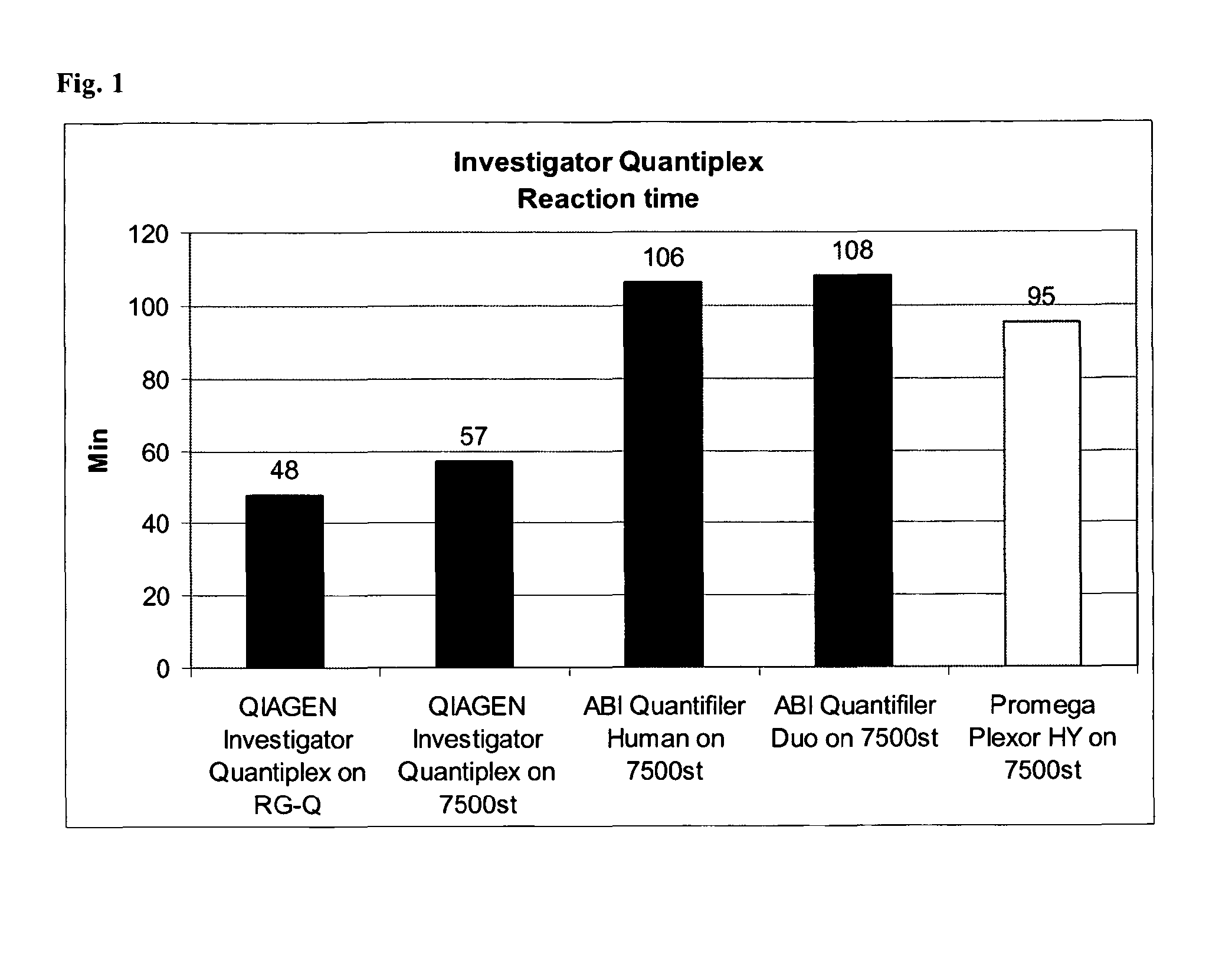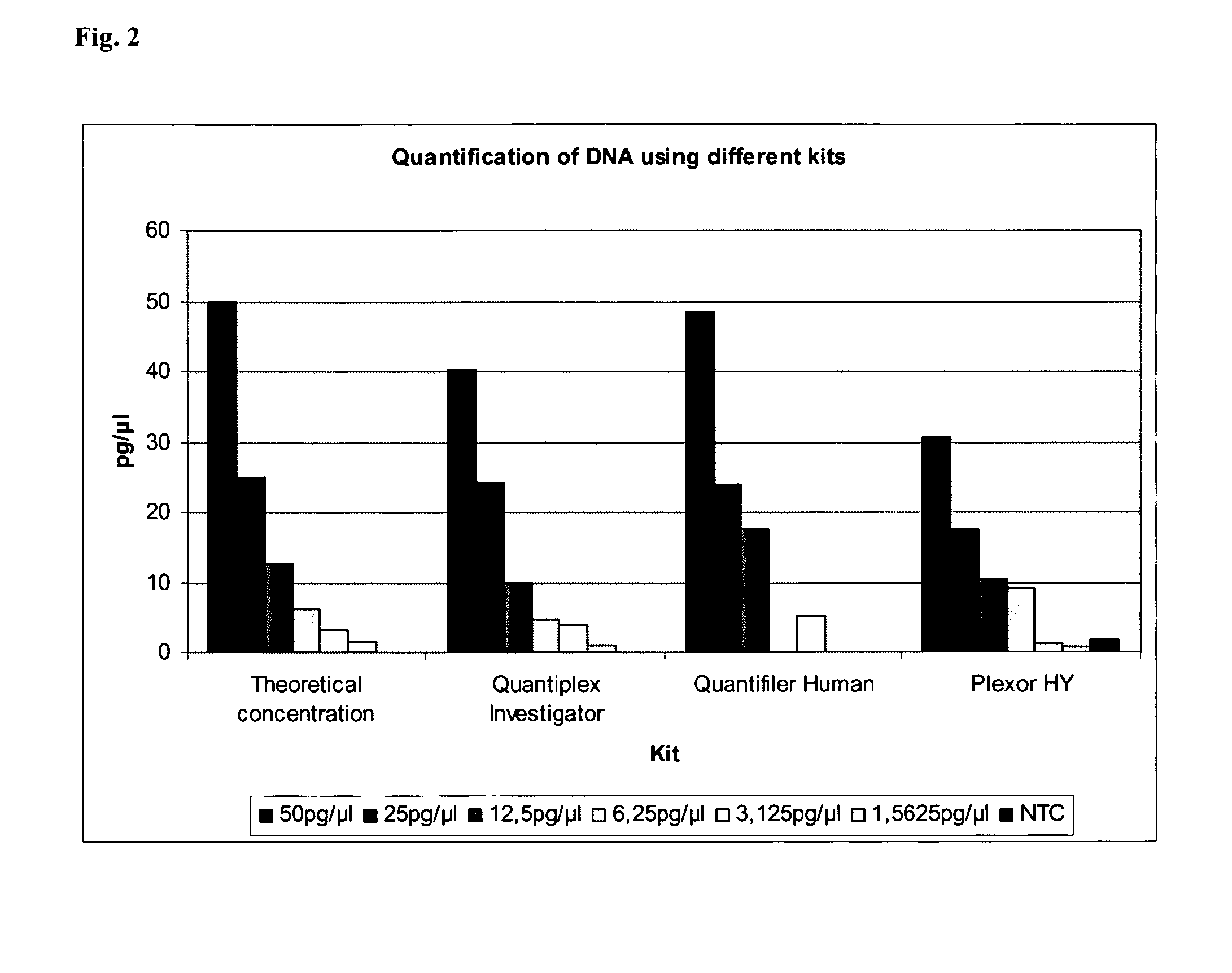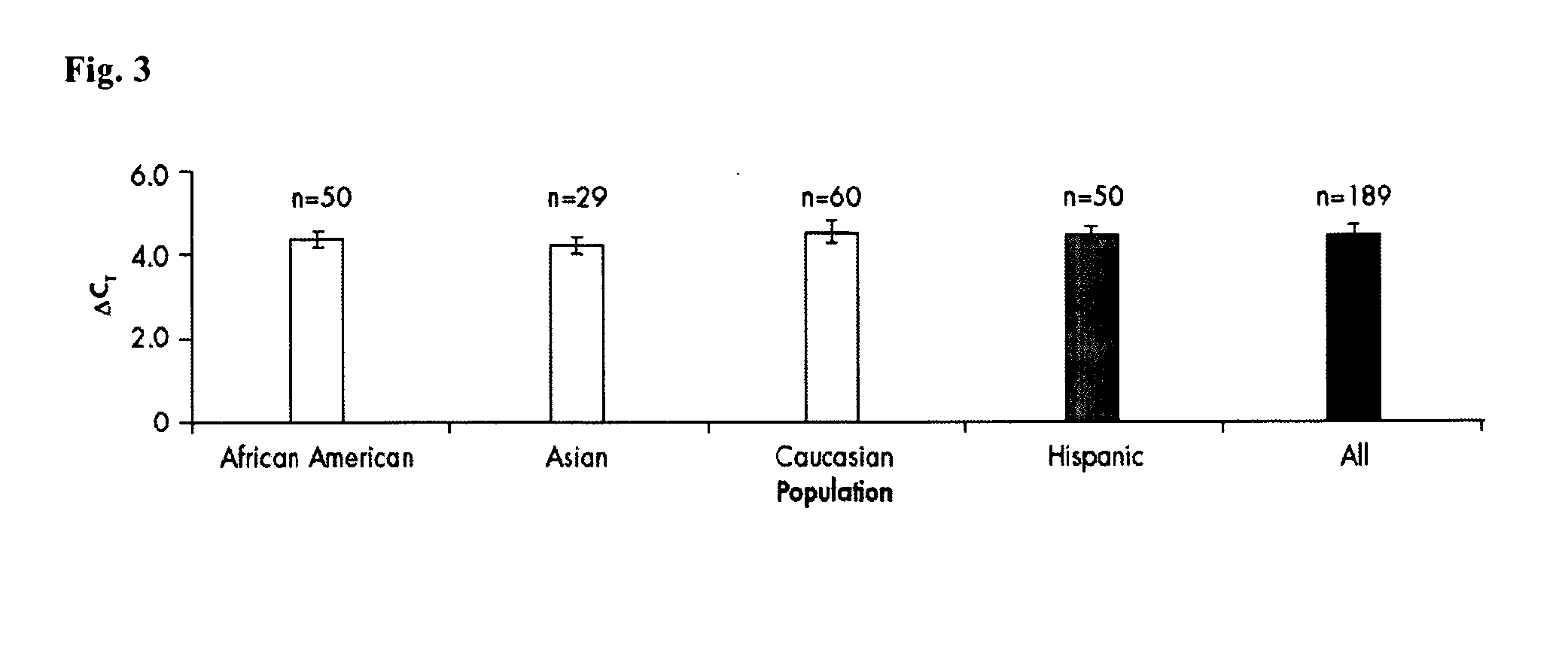Method for quantifying human DNA using an internal control
a human dna and internal control technology, applied in the field of molecular biology and diagnostics, can solve the problems of difficult analysis of strident data, serious drawbacks, and lower accuracy
- Summary
- Abstract
- Description
- Claims
- Application Information
AI Technical Summary
Benefits of technology
Problems solved by technology
Method used
Image
Examples
examples
[0124]The quantification of human DNA is an essential step for the set-up of STR reactions in the forensic field. Many different kits are currently available on the market for quantifying DNA (Quantifiler Human, Quantifiler Y, Quantifier Duo, Plexor HY), but all these kits have different disadvantages, such as the PCR product which is amplified on the human DNA is short and not representative for degraded DNA, the reaction is time-consuming, the chosen target is not stable in different populations or individuals.
[0125]The PCR product of the first nucleic acid is 146 bp. A reaction time of 48 minutes was achieved. This is in parts due to the fast PCR reaction chemistry with a pH range between 8 and 9 and containing NH4+, K+ and Mg2+ ions and the presence of a fast hot start enzyme with a non-chemical hot-start method such as antibody, aptamer or affibodies, but also in particular to a stable multi-copy target providing higher sensitivity and reliability combined with an internal cont...
PUM
| Property | Measurement | Unit |
|---|---|---|
| temperature | aaaaa | aaaaa |
| temperature | aaaaa | aaaaa |
| temperature | aaaaa | aaaaa |
Abstract
Description
Claims
Application Information
 Login to View More
Login to View More - Generate Ideas
- Intellectual Property
- Life Sciences
- Materials
- Tech Scout
- Unparalleled Data Quality
- Higher Quality Content
- 60% Fewer Hallucinations
Browse by: Latest US Patents, China's latest patents, Technical Efficacy Thesaurus, Application Domain, Technology Topic, Popular Technical Reports.
© 2025 PatSnap. All rights reserved.Legal|Privacy policy|Modern Slavery Act Transparency Statement|Sitemap|About US| Contact US: help@patsnap.com



